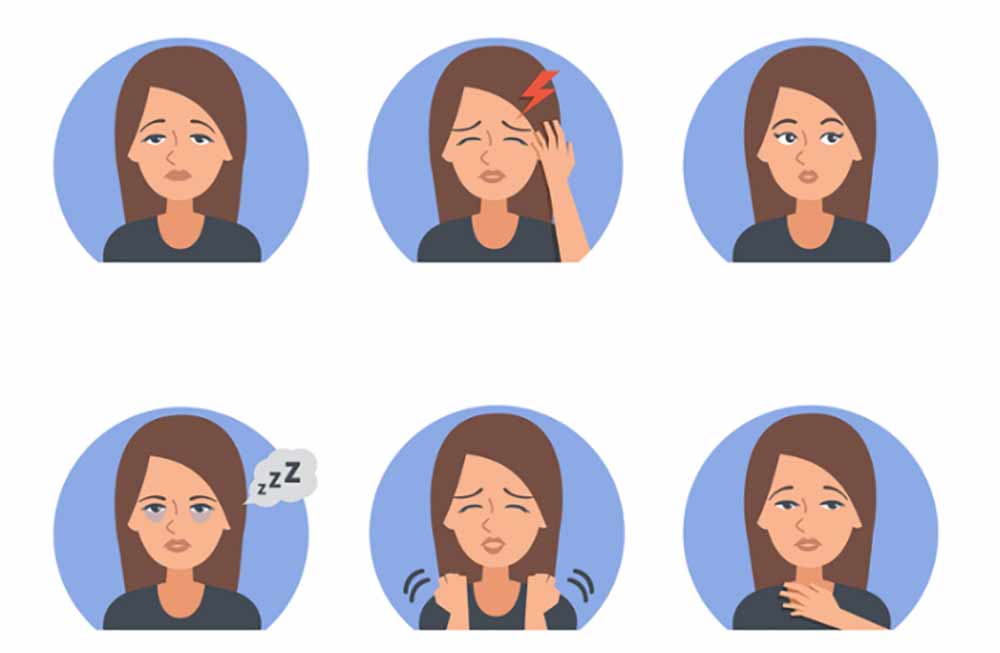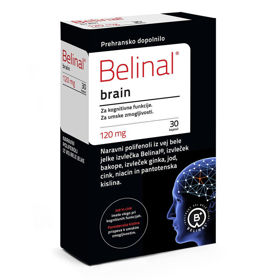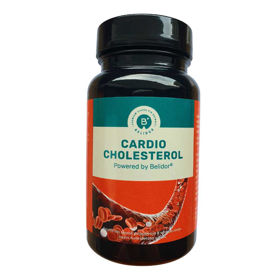Sindrom kronične utrujenosti je zapleteno in za zdaj še nepojasnjeno stanje, katerega je Svetovna zdravstvena organizacija (WHO) kategorizirala kot nevrološko stanje, čeprav ima širok razpon vplivov na telo, vključno s srcem, prebavnim, imunološkim in mišičnim sistemom ter možgani in mišicami.
KRONIČNA UTRUJENOST: Kaj je kronična utrujenost? | Vzroki kronične utrujenosti | Simptomi | Zdravniška pomoč | Diagnostika | ZDRAVLJENJE kronične utrujenosti | Konvencionalna medicina | Alternativni načini | Domača zdravila | Preprečevanje | Vprašanja in odgovori | Viri/reference
Kronična utrujenost je stanje, za katerega je značilno vnetje možganov in hrbtenjače ter nelagodje v mišicah. Čeprav še niso odkrili pravega vzroka in posledično tudi ne pravega načina za preprečevanje ali zdravljenje bolezni, znanstveniki začenjajo dojemati nekatere biokemične spremembe, ki se pojavljajo v telesih bolnikov s to težavo.
Video vsebina: Kaj je sindrom kronične utrujenosti?

O sindromu kronične utrujenosti, ki ga poznamo tudi pod imeni sindrom kronične utrujenosti in imunske disfunkcije, kronična okužba z virusom Epstein-Barr in mialgični encefalomielitis, se je v javnosti začelo govoriti sredi 80. let. V glavnem se bolezen loti mladih mestnih intelektualcev. Seveda pa so za bolezen dovzetni vsi sloji prebivalstva, vključno z otroki.
Za sindrom kronične utrujenosti so značilni vedno hujša utrujenost in drugi simtpomi, ki so podobni gripi. Bolezen ni nalezljiva. Začetek je značilno nenaden in izčrpavajoč. Izčrpanost, ki jo čutijo osebe s sindrom kronične utrujenosti, ni posledica pretiranega telesnega naprezanja in kljub počitku ali jemanju zdravil ne mine. Nasprotno, stanje postaja sčasoma vedno slabše.
Sindrom kronične utrujenosti ni napredujoča degenerativna ali življenje ogrožajoča bolezen, čeprav se lahko vleče leto ali več. Simptomi se umirjajo in postanejo spet izrazitejši, kot nekakšno plimovanje, in pogosto postanejo, tik preden se poležejo, nevzdržni. Končno pa velika večina ljudi vendarle okreva.
Raziskava je pokazala, da je kronična utrujenost povezana s težavami, ki vključujejo:
- sposobnost telesa, da proizvaja energijo na celični ravni
- imunski, nevrološki in hormonski sistem
- uravnavanje krvnega tlaka in srčnega utripa
- prebavo
- spanje
- kognitivno sposobnost – kako hitro se informacije obdelajo
Kronična utrujenost lahko prizadene moške, ženske in otroke vseh starosti, etničnih skupin in socialno-ekonomskih okolij. 75-80 % ljudi s to boleznijo je žensk.

Za večino ljudi je kronična utrujenost vseživljenjska bolezen. Popolno okrevanje je redko in ocenjeno na manj kot 10 %. Nekateri ljudje s kronično utrujenostjo bodo s časom in izboljšanjem bolezni ugotovili, da lahko naredijo več, vendar je to počasen in postopen proces.
Vendar to ne velja za vse; nekaterim ljudem se bolezen sčasoma poslabša, pri drugih pa lahko ostane nekoliko stabilna. S pravilno podporo in procesom, si lahko ljudje s kronično utrujenostjo pogosto izboljšajo kakovost življenja.
Vzrok nastanka kronične utrujenost še ni znan
Raziskovalci so odkrili več biokemičnih anomalij pri tistih, ki se soočajo s sindromom kronične utrujenosti, vendar natančna razlaga še vedno ni znana. Pri nekaterih bolnikih lahko okužba, izpostavljenost kemikalijam, anestetik, imunizacija ali travma, kot je prometna nesreča, nenadoma povzročijo manifestacijo stanja.
Pri drugih lahko kronična utrujenost počasno napreduje več mesecev ali let. Raziskave nedvoumno kažejo, da je kronična utrujenost biološko stanje in ni posledica telesne nezmožnosti ali težav z duševnim zdravjem.
Video vsebina: sindrom kronične utrujenosti in povzročitelji, simptomi...

Vzroka sindroma kronične utrujenosti ne poznamo, vendar znanstveniki proučujejo številne različne možnosti. Sindrom kronične utrujenosti je na primer lahko avtoimunska bolezen, ki je posledica kombinacije virusne okužbe, alergije in hormonskega neravnovesja. Ena od teorij trdi, da je posledica čezmernega jemanja antibiotikov ali dolgotrajnega izpostavljanja pesticidom ali kemičnim snovem. Študije navajajo tudi možnost disfunkcije imunskega sistema. Poleg tega pa nekateri znanstveniki kot možen vzrok proučujejo tudi enteroviruse, kot sta virus polio in človeški virus herpesa, ter nedavno odkrite retroviruse, kakršen je HIV, čeprav ni nobene povezave med sindrom kronične utrujenosti in HIV ali aidsom. Spet drugi vidijo možno povezavo med sindrom kronične utrujenosti in kronično glivično okužbo.
Dandanes velja teorija, da se sindrom kronične utrujenosti pojavi, če nek oportunističen virus ali kakšna druga snov napade telo takrat, ko je imunski sistem že prizadet. Dejavniki, ki lahko k temu stanju še pripomorejo, so telesni in čustveni stres ter stres iz okolja ali kombinacija vseh treh.
Čeprav mnogi ljudje, vključno z nekaterimi zdravniki, dvomijo v to in celo menijo, da je sindrom kronične utrujenosti bolj psihološko kot fiziološko bolezensko stanje, raziskave vendarle potrjujejo, da imajo ljudje s sindrom kronične utrujenosti motnje v imunskem delovanju. Te motnje preprečujejo telesu, da bi se znebilo napadalnih virusov ali da bi zaustavilo ponovno aktivacijo virusov, ki so poprej spali v telesu.
Slika: izgled virusa Epstein-Barr

Včasih je za vzrok sindrom kronične utrujenosti veljal virus Epstein-Barr, ki povzroča mononukleozo, vendar danes vemo, da nima z njim nič sindrom skupnega.
Simptomi kronične utrujenosti
Slabo počutje po naporu in zmanjšanje zmožnosti delovanja po nizki ali ničelni telesni ali duševni dejavnosti je primarni simptom kronične utrujenosti.
Osebe s kronično utrujenostjo se telesno drugače odzivajo na gibanje ali vadbo kot zdravi posamezniki. Po vključitvi v kakršno koli fizično ali duševno dejavnost, ki naj ne bi bila problematična pred nastankom kronične utrujenosti, lahko oseba občuti netipično utrujenost.
Stopnja napora se razlikuje glede na resnost bolezni in se lahko sčasoma spremeni. Lahko traja do 24 ali 48 ur, da pride do reakcije, zaradi česar je težko ugotoviti, koliko vadbe je preveč. Izgorelost po naporu lahko traja nekaj dni ali pa pride do večjih ponovitev, ki trajajo tedne, mesece ali celo leta, odvisno od količine in vrste vadbe ali dejavnosti.
Video vsebina: sindrom kronične utrujenosti in vzroki, znaki oziroma simptomi...

Dejavnosti, ki so jih ljudje pred kronično utrujenostjo jemali za samoumevne, imajo zdaj velik negativen vpliv na njihovo zdravje. Na primer, dejavnosti, ki so bile prej preproste, kot je hiter sprehod, kava s prijateljem, priprava otroka na šolo ali vožnja z vlakom v službo, so lahko nenadoma izjemno zahtevne ali nemogoče. Ko je ena dejavnost sprejemljiva in ji je dodana druga, lahko to postane preveč, kar povzroči izgorelost.
Kronična utrujenost je zapletena, večsistemska kronična bolezen in osebe, ki živijo z njo, lahko občutijo številne simptome. Vsakdo ne bo občutil vseh navedenih simptomov in vsi niso potrebni za diagnozo.
Pogosti simptomi vključujejo:
- nedaven pojav izčrpajoče utrujenosti
- utrujenost, ki ni posledica napora in ne mine po počivanju
- pozabljivost, zmedenost, nezmožnost koncentracije
- stalno blago povišana telesna temperatura
- motnje spanja (nespečnost ali pretirana zaspanost)
- težave z mišljenjem in koncentracijo
- slabši spomin in vid
- ponavljajoče se angine
- otekle in na pritisk boleče bezgavke
- okornost, trzanje ali mravljinčenjem mišic (nevrokognitivne težave)
- slab spanec
Slika: posledice sindroma kronične utrujenosti so: utrujenost, številni glavoboli, ixguba koncentracije, problem s spanjem, problemi z mišičjem, boleče grlo

- dolgo trajajoča izčrpanost po telesnem naporu
- bolečine v mišicah, sklepih ali glavoboli
- bolečina v sklepih brez otekanja in rdečice, ki se seli
- spremembe krvnega tlaka, občutek omotice ali bledosti
- palpitacije, povišan srčni utrip ali težko dihanje ob naporu ali stanju
- alergije ali občutljivost na svetlobo, vonjave, dotik, zvok, hrano, kemikalije in zdravila
- spremembe v prebavilih, kot so slabost, napenjanje, zaprtje, driska
- težave z uriniranjem
- vneto grlo, občutljive bezgavke in gripi podobni simptomi
- izrazita sprememba teže – ekstremna izguba ali povečanje
- nezmožnost obvladovanja temperaturnih sprememb
- simptomi, ki trajajo šest mesecev, katerih posledica je izrazito zmanjšanje aktivnosti.
Simptomi lahko nihajo v kratkih časovnih obdobjih, tudi iz ure v uro, kar lahko oteži načrtovanje dejavnosti. Simptomi se lahko spreminjajo tudi v daljšem časovnem obdobju, na primer v mesecih ali letih.
Kdaj k zdravniku
- vas utrujenost vse bolj premaguje in zanjo ne najdete jasnega vzroka, kakršen je npr. stres. Zdravnik bo moral najprej izkjučiti druge bolezni, ki imajo lahko podobne simptome kot sindrom kronične utrujenosti.
To so predvsem: depresija, ščitnične motnje, mononukleoza, artritis, lupus in rak.
Diagnostični postopki
Trenutno ni na voljo niti enega testa za identifikacijo te bolezni. Z izključitvijo vseh drugih stanj, ki bi lahko povzročala simptome, in uporabo priznanih diagnostičnih meril, lahko zdravniki postavijo diagnozo. Rezultati rutinskega zdravniškega testa bodo pogosto normalni, vendar lahko dodatni testi razkrijejo anomalije.
Video vsebina: diagnoza in uravnavanje sindroma

Zdravniku povejte svojo anamnezo, nato bo opravil telesni pregled in vam dal narediti krvno sliko, da izključi morebitne druge motnje, ki imajo podobne simptome kot sindrom kronične utrujenosti. Te so lahko HIV, mononukleoza, multipla skleroza, fibromialgija (bolezen, ki povzroča bolečine v mišicah), borelioza in depresija. Morda bodo opravili tudi test na protijedrna protitelesa (ANA), da izključijo morebitni artritis, lupus in druge bolezni veziva. Lahko vam bodo testirali delovanje ščitnice, da izključijo bolezen ščitnice. Hitrost sedimentacije (SR) je lahko, kadar imate v telesu kakršnokoli vnetje, povečana.
Ko bo zdravnik izključil druge možnosti, bo morda preveril, če le nimate resnično sindrom kronične utrujenosti. To opravi s pomočjo posebnega testnega vprašalnika, ki temelji na smernicah za ugotavljanje sindrom kronične utrujenosti. Da izpolnjujete merila za dokončno diagnozo, morajo simptomi trajati že šest mesecev.
Kakšne vplive ima kronična utrujenost na ljudi?
Kronična utrujenost prizadene različne ljudi na različne načine, nekatere močneje kot druge. Obstajajo štiri stopnje resnosti, ki nakazujejo stopnjo invalidnosti, ki jo to stanje lahko povzroči:
- blaga: 50 % zmanjšanje aktivnosti
- zmerna: večinoma vezana na hišo
- huda: osebe so večinoma priklenjene na posteljo
- zelo huda: popolna priklenjenost na posteljo in potreba po pomoči pri opravljanju osnovnih dejavnostih, vključno s prehrano in hidracijo.
Sčasoma se lahko stopnja resnosti spremeni. Prizadeta oseba lahko trenutno doživlja svojo bolezen na eni stopnji resnosti, sčasoma pa se ta lahko izboljša ali poslabša. Pri nekaterih posameznikih lahko pride do resnega poslabšanja njihovega stanja brez očitnega razloga. Drugi ljudje doživljajo "nihajočo bolezen", kjer doživljajo faze izboljšanja in upada, ki trajajo mesece ali leta.
Zdravljenje
Ker je vzrok sindrom kronične utrujenosti neznan, je zdravljenje omejeno le na blažitev simptomov.
Video vsebina: kako zdravimo sindrom kronične utrujenosti?

Za lažje shajanje s potekom bolezni so vam na voljo številni konvencionalni in alternativni načini zdravljenja.
Konvencionalna medicina
Zelo pogosto se za prvi korak zdravljenja sindroma kronične utrujenosti priporoča ohranjanje splošnega dobrega zdravja in izogibanje situacijam, ki so lahko duševno ali telesno stresne. Potrebno je tudi najti ustrezno ravnovesje med počitkom in neintenzivnimi telesnimi dejavnostmi.
Simptome sindroma kronične utrujenosti, ki so podobni gripi, lahko začasno omilite z veliko različnimi zdravili. Morda vam bo zdravnik zaradi nekoliko povečane telesne temperature, glavobola in bolečin v mišicah in sklepih predpisal kratkotrajno jemanje nesterioidnih protivnetnih zdravil ali acetilsalicilne kisline. Nizki odmerki monoaminooksidaznih (MAO) inhibitorjev, fluoksetina ali tricikličnih antidepresivov lahko pomagajo izboljšati spanje in omiliti utrujenost ter mišično bolečino. Študije so potrdile različne stopnje uspeha pri zdravljenju sindroma kronične utrujenosti z intravenskim dajanjem gamaglobulinov, že dolgo znanih pripravkov iz krvi.
Nekateri zdravniki pa skušajo modulirati imunski sistem s histaminskimi H2 zaviralci (podrazred protiulkusnih zdravil), kakršna sta cimetidin in ranitidin, čeprav se zaenkrat taki načini zdravljenja uporabljajo predvsem v raziskovalne namene.
Video vsebina: okrevanje po sindromu kronične utrujenosti.

K sindromu kronične utrujenosti lahko prispeva tudi občutljivost za kemične snovi, pesticide, gospodinjska čistila in druge potencialno nevarne strupe v okolju. Sredstva, za katera sumite, da vam škodijo, nehajte uporabljati in jih potem vpeljujte postopno drugega za drugim, da ugotovite, katero bi lahko povzročalo vaše simptome.
Alternativni načini
Veliko alternativnih načinov zdravljenja lahko pomaga nadzirati različne simptome sindroma kronične utrujenosti. Preden se odločite za določeno zdravljenje, vsekakor preverite pri svojem zdravniku, če je diagnoza prava.
Akupresura
Nežno pritiskanje na točki žolčnika lahko olajša simptome utrujenosti in depresije ter obenem okrepi imunski sistem. Te akupresurne postopke lahko izvajate enkrat ali večkrat dnevno ali pa le, kadar se pojavijo simptomi sindroma kronične utrujenosti. Pri pritiskanju na točko Žolčnik 21 morajo biti nosečnice previdne.
Akupunktura
Praktik akupunkture se lahko odloči za nize zdravljenja, s katerimi poskuša normalizirati ali stabilizirati imunski sistem. V kitajski medicini so lahko del strategije zdravljenja krepitev življenjske energije, hranjenje krvi in krepitev duha.
Kitajska zelišča
Mešanica, ki jo na trgu dobite v obliki prahu ali tablet, vsebuje kombinacijo azijskega ginsenga (Panax ginseng), uralskega sladkega korena (Glycyrrhizia uralensis), grahovca (Astragalus membranaceus) in drugih zelišč.
Video vsebina: kako si lahko pomagamo s kitajsko medicino?

Nekatera nezanesljiva poročila navajajo, da se je stanje pri bolnikih s sindromom kronične utrujenosti, ki so to kombinacijo redno uživali, izboljšalo. O pravilnem jemanju tega zeliščnega zdravila se posvetujte z zeliščarjem, ki se spozna na kitajska zelišča.
Zelišča
Za hidrastis (Hydrastis canadensis) obstajajo nekateri dokazi, da zvečuje aktivnost belih krvničk. Ehinaceja (Echinacea spp) in gobe šiitake (Lentinus edodes) vsebujejo oligosaharide, ki so znani kot izrazito močan imunski spodbujevalec. Jemljite jih v zmerni količini in upoštevajte nasvete zeliščarja. Uralskemu sladkemu korenu (Glycyrrhizia uralensis) pripisujejo, da učinkuje protivirusno.

Silimarin, snov, ki jo vsebuje bodeča neža (Sylibum marianum), lahko 'pomaga pri jetrnih težavah, ki včasih pestijo ljudi s sindrom kronične utrujenosti. Za spodbujevalce imunske aktivnosti naj bi veljali tudi nemška kamilica (Matricaria recutita), navadni repinec (Arctium lapa), rman (Achillea millefolium) in azijski ginseng (Panax ginseng). Za ljudi, ki trpijo zaradi sindroma kronične utrujenosti, so lahko, če jih jemljejo redno, koristni.
Homeopatija
Nekateri praktiki homeopatije poročajo o uspehih pri zdravljenju sindroma kronične utrujenosti. Kot pri vseh kroničnih težavah je najbolje poiskati nasvet pri homeopatu, ki lahko postavi natančno diagnozo in zdravi določene simptome pri vsakem posamičnem primeru.
Medicina duha in telesa
Meditacija, progresivno sproščanje, vodene predstave, čigong in joga so tehnike, ki lahko omilijo simptome zaradi sindroma kronične utrujenosti, niso pa naporne. Pravzaprav vas lahko celo oskrbijo z dodatno energijo, ker zmanjšujejo stres.
Prehrana
Ena od teorij trdi, da je pomanjkanje hranil lahko dodatni dejavnik sindrom kronične utrujenosti, zato je pomembno, da se res zdravo prehranjujete. Izogibajte se kofeina, alkohola, rafiniranega sladkorja, bele moke, soli in ocvrtih, konzerviranih in zelo mastnih jedi. Namesto njih raje uživajte otrobe, fižol, riž, ribe in sveže sadje ter zelenjavo. Svoji prehrani dodajte užitne alge, gobe šiitake (Lentmus edodes) in sladki koren (Glycyrrhizia glabra).
Če pojeste dva stroka česna (Allium sativum) dnevno, bo to dodatno okrepilo protivirusno in protibakterijsko aktivnost vašega imunskega sistema. Če česen stisnete ali ga nasekljate, se žveplova sestavina, ki se imenuje aliin, pretvori v alicin, ki ga nekateri ljudje le težko prebavijo. Če ne morete prebaviti svežega česna, lahko poskusite eno izmed tablet iz izvlečka česna, ki so na prodaj brez recepta.
Video vsebina: dieta v primeru sindroma kronične utrujenosti

Koencim Q10 in vitamin B12 sta prehranska dodatka, ki lahko zmanjšata simptome. Obstaja tudi nekaj dokazov, da lahko kombinacija malata in magnezija zmanjša utrujenost in mišično bolečino. Jajčni lecitin, ki ga jemljemo ob obrokih, lahko pospešuje imunost in veča energijo. Druga vitamina, ki prav tako krepita imunski sistem, sta vitamin C in beta karoten, ki je tudi naravni antioksidant. Vitamina B5 in B6, cink, selen, mangan in krom prav tako vplivajo na krepitev imunskega sistema.
Aminokislina triptofan, ki jo najdemo v različni hrani, je lahko koristna pri nekaterih simptomih. Ker pomaga telesu pri proizvodnji hormona serotonina, naravnega pomirjevala, lahko prispeva k boljšemu spancu. Tega dodatka pa ne smete jemati, če imate visok krvni tlak ali jemljete zdravila proti depresiji.
Nič nenavadnega ni, če so ljudje s sindrom kronične utrujenosti občutjivi za določeno hrano ali pa so bili zanjo občutljivi v otroški dobi. Te preobčutjivosti se lahko kažejo kot alergijske reakcije ali kot drugačno neprenašanje določene hrane ali več hranil.
Če hrana, na katero ste alergični, vstopi v telo, jo imunski sistem zazna kot napadalca, podobno kot virus ali bakterijo, in jo napade ter preplavi vaš krvni obtok s protitelesi. Preveliko število teh protiteles in še dodatno sproščanje histamina in drugih telesnih kemičnih snovi povzroči simptome, kot so povečano nastajanje sluzi, nabrekanje tkiva, glavobol, angina in včasih duševna zmedenost.

Najlažji način, da ugotovite, katera hrana ali hranila so kriva za to, je, da poskusite s tehniko izločanja iz prehrane. Za teden ali dva prenehajte uživati stvari, za katere menite, da vam povzročajo alergijske reakcije. Značilni krivci so mlečni proizvodi, orehi, jajca, lupinasti morski sadeži in konzervansi v pripravljeni hrani. Seveda pa so lahko vzrok za vaše težave še mnoga druga hranila. Če simptomi izginejo, v prehrano počasi ponovno vključujte posamično hrano ali hranilo in opazujte, kako se bo vaše telo odzvalo nanjo. Če se bodo simptomi vrnili, boste določili vsaj eno hranilo, na katero ste alergični. Izločite ga iz svoje prehrane v vseh njegovih oblikah.
Domača zdravila
Preverite, ali si morda ne nalagate več aktivnosti, kot ste jih sposobni v enem dnevu opraviti. Veliko počivajte, budno pazite na svojo prehrano in poskrbite za redno zmerno telesno dejavnost.
Preprečevanje kronične utrujenosti
Ker nihče ne ve, kaj povzroča sindrom kronične utrujenosti, ne poznamo tudi nobenega učinkovitega preprečevanja. Seveda pa se lahko poslabšanju simptomov izognete s krepitvijo imunskega sistema z vitamini, pravilno prehrano (vključno z izogibanjem alergenom), z zmernimi telesnimi vajami, izogibanjem strupov iz okolja in nadziranjem morebitne alergije. Morda boste tudi želeli poskusiti z različnimi alternativnimi načini zdravljenja, da ugotovite, kateri je za vas najprimernejši.
Uravnavanje tempa življenja
Uravnavanje tempa življenja ali vzdrževanje ravni energije je tehnika samoupravljanja, ki osebam s kronično utrujenostjo omogoča preprečiti prekomeren napor po aktivnosti ali vadbi. To zmanjšuje možnost nastanka izgorelosti in lahko zmanjša simptome kronične utrujenosti.
Slika: gibanje telesa naj bo učinkovito in predhodno načrtovano.

Cilj uravnavanja tempa je narediti vadbo trajnostno, z namenom, da ima oseba zmožnost uravnavati simptome. Počitek je tako nujno potrebno kombinirati s tempom aktivnosti.
Najslabše pri uravnavanju tempa je dejstvo, da se izgorelost pogosto zakasni za 24 do 48 ur, zaradi česar je težko vedeti, kdaj ste z vadbo pretiravali. Z orodji, kot sta dnevnik dejavnosti ali merilnik srčnega utripa, boste morda izvedeli več o svojem telesu in o tem, koliko vadbe lahko vaše telo še varno prenese.
Dodatni predlogi, kako uravnavati kronično utrujenost
- Uporabite dnevnik dejavnosti z namenom spremljanja svojih aktivnost in simptomov v teku tedna. To vam lahko pomaga ugotoviti meje zmogljivosti vašega organizma. Tistim, ki trpijo za manj resnim stanjem kronične utrujenosti, lahko pedometer pomaga izmeriti količino telesne dejavnosti, ki se izvaja vsak dan. Merilnik srčnega utripa lahko pomaga tudi pri spremljanju ravni aktivnosti in vam pomaga vedeti, kdaj se morate ustaviti in počivati.
Video vsebina: ali je bakterijska mikroflora morebiti povezana s kronično utrujenostjo?

- Fizično dejavnost razporedite na manjše intervale z vmesnimi odmori. Nadaljujte z uporabo dnevnika za spremljanje simptomov in dejavnosti, medtem ko spreminjate ravni aktivnosti, da ugotovite, kaj je za vas optimalno.
- Menjava med telesno in kognitivno aktivnostjo lahko pripomore k porazdelitvi energijske obremenitve. Prepoznajte dejavnosti, ki so za vas najbolj obremenjujoče, in načrtujte dodaten počitek pred in po tej aktivnosti. Izogibajte se prevelikemu številu dejavnosti na isti dan.
- Poiščite načine za varčevanje z energijo, porabljeno za določeno aktivnost. Uporabite stol za tuširanje ali stol v kuhinji, ko kuhate ali pomivate posodo.
- Poslušajte svoje telo. Tudi če mislite, da lahko nadaljujete, ko vam telo reče, da se morate ustaviti, si vzemite čas za počitek.
- Bodite realni. Nemogoče je doseči popoln tempo in to ne bi smel biti vaš edini cilj. Neizogibne obveznosti, kot je skrb za otroke, lahko otežijo tempo. Včasih je pomembna tudi zabava.
- Ne pozabite, da tudi čustva porabljajo energijo. Obdobja stresa ali čustvenih pretresov bodo izčrpala vaš organizem, kar pomeni, da ostaja manj energije za druge stvari.
Če ste pretiravali z aktivnostjo ali vadbo ali ste iz kakršnega koli razloga doživeli nesrečo, zmanjšajte raven aktivnosti in poskrbite za počitek. Ponavljajoče se pretiravanje lahko povzroči hudo in dolgotrajno ponovitev sindroma kronične utrujenosti, kar lahko pripelje do izgorelosti.
Vprašanja in odgovori
Kakšen je občutek sindroma kronične utrujenosti?
Za sindrom kronične utrujenosti je značilna globoka utrujenost. Simptomi se pogosto poslabšajo s telesno ali duševno aktivnostjo, poleg hude utrujenosti pa simptomi vključujejo tudi občutljivost na svetlobo, glavobol, bolečine v mišicah in sklepih, težave s koncentracijo, nihanje razpoloženja, depresijo...[1].
Kako vem, ali imam kronično utrujenost?
- ves čas se počutite izjemno utrujeni - morda boste zelo težko opravljali vsakodnevne dejavnosti.
- občutek utrujenosti po počitku ali spanju ostaja.
- dolgotrajno okrevanje po telesni aktivnosti.
- težave s spanjem, kot je pogosto zbujanje ponoči.
- težave z mišljenjem, spominom in koncentracijo[2].
Kaj je najpogostejši razlog za kronično utrujenost?
Večinoma je utrujenost posledica ene ali več življenjskih težav/preizkušenj.. Utrujenost je lahko posledica jemanja nekaterih zdravil ali pa je povezana z depresijo. Včasih je utrujenost simptom bolezni, ki zahteva posebno zdravljenje[3].
Viri in reference
Vir: Družinski zdravstveni vodnik. Konvencionalno in alternativno zdravljenje, Dr. Jajo Lajovic, Založba Mladinska knjiga
1. Chronic fatigue syndrome - https://www.mayoclinic.org
2.Myalgic encephalomyelitis or chronic fatigue syndrome - https://www.nhs.uk
3. Fatigue - https://www.mayoclinic.org








 Facebook
Facebook
 Instagram
Instagram
 info@moja-lekarna.com
info@moja-lekarna.com

